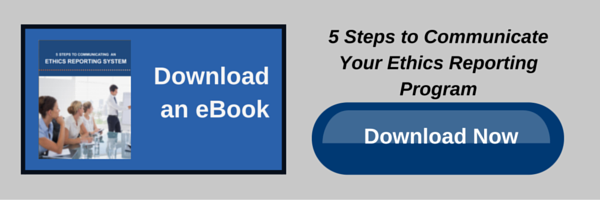
As any employee knows, the work environment is subject to many of the same ethical challenges that we face in society. With different types of people, and many different cultures and personalities, unethical behaviour can, and does arise from time to time.
Learning how to address issues capably, and deal with them promptly, can keep your office a much more pleasant and comfortable environment in which to work. As a business owner you may also have a legal obligation to provide a system to manage issues.
Among the most common inappropriate business behaviours of employees, are making long-distance calls on business lines, duplicating software for use at home, falsifying the number of hours worked, or much more serious and illegal practices, such as embezzling money from the business, harassing fellow employees, or falsifying business records.
Though there is often a fine line between behaviours that are unethical and activities that are illegal, in many industries it is up to the business itself to decide how it deals with specific cases, whether it is internally or by self-reporting to an oversight entity.
Unethical behaviour that is not illegal can fall into a grey area that may be undefined without internal codes of conduct. This can make it difficult to decide how to proceed when it is encountered. Often times different people have varying opinions in regard to what is ethical or unethical. As such it is critical to have a clearly defined code of ethics and a system through which employees can report any impropriety.
With clear directives there will be less hesitation in reporting issues, and they can be dealt with quickly and efficiently. Most often before they develop into situations that can effect the entity's reputation and/or bottom-line.
By having clearly defined expectations and having a whistleblower system in place, both the person committing the breach, and the witness to the activity will be well aware of the way that things will be managed internally. There will be no concerns as to any risk of someone not reporting the problem because they fear for their own well-being, or that they are afraid the offender will be unfairly treated. Confidential and/or anonymous communication is key in the proper management of any issue.
In order to effectively implement an internal code of conduct, many companies have adopted several techniques that allow for the management of these processes. The first step is to create a company policy, in writing, that is read and signed by each employee. This lessens any feelings of ambiguity when it comes to deciding what to do after witnessing a behaviour that is legally wrong, or infringes upon company policy.
The second step is to give a clear outline of what is expected of the person who has discovered the problem. It includes the person who should be contacted, and how to go about doing it. This where an independent third party reporting system is of great value. The ability to report anonymously, confidentially and without fear of retribution is of so much value.
If you ever have a question about the actions of a fellow employee, it is best practice to file a whistleblower report right away. If the issue were to come to management's attention in some other way and you were found to be knowledgeable of it, you could be just as culpable as the employee who committed the breach.
It is better to be proactive, and to make sure the security of your own job is safe, rather than try to cover for someone else. Make sure you read and understand your company's standards on what is unethical workplace behaviour.

